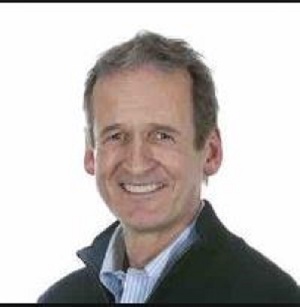Mr Markus Gemuend, the Head of Sub-Saharan Africa, Roche, has said that the lack of financial burden data was a major obstacle to developing policies for cancer care in lower middle-income countries.
“Limited resources also adversely impact access to care, resulting in sub-optimal management, high morbidity and mortality and this often, places breast cancer patients and their families at risk of financial hardship.
This was contained in a press release issued on Friday on the presentation of the study design for the first-ever breast cancer patient journey study in sub-Saharan Africa (SSA) at the African Organization for Research and Training in Cancer (AORTIC) congress in Kigali, Rwanda.
Mr Gemuend said, “We believe that patients in sub-Saharan Africa deserve the same treatment as everyone else. When we work with partners with a genuine will to make a difference for patients is when real impact can happen.”
He said the study was aimed at describing the typical breast cancer patient journey, as well as to assess resource use, cost, and other hurdles influencing patient care in public and private hospitals in Kenya, Nigeria and Ghana.
He said the full study data, which would be available in 2018, would provide insight into the challenges of addressing the full spectrum of breast cancer patient care in SSA, and help identify what solutions were needed at multiple points in the patient journey.
Mr Gemuend observed that regardless of advances in management, breast cancer was the leading cause of cancer death among women worldwide, adding that, “The burden of breast cancer disproportionately affects African countries with 5-year survival rates as low as 12 per cent in parts of Africa, compared with almost 90 per cent in the United States, Australia and Canada.”
“In addition, as many as 80 per cent of patients in SSA are diagnosed with late-to-end stage disease when very little can be achieved in terms of curative treatment,” he informed.
He said the study would assess delays to patient care, including delays to initiating standard of care testing (mammography, MRI, ER, HER2, chest x-ray) and to receiving these test results, as well as delays to initiation of standard of care treatment (neoadjuvant chemotherapy, breast surgery, mastectomy, biologic treatment).
“The study will also assess direct cost to patients, including how many pay for their cancer care out of their pocket and how many are unable to complete treatment for cost reasons,” he informed.
According to Roche, the study was a retrospective chart review conducted in three public and three private hospitals in countries, including Ghana, Kenya and Nigeria. The study aimed to obtain a comprehensive two-year sample of up to 1,000 anonymised patient records across all study sites.
He said a panel of local healthcare providers would provide qualitative information on breast cancer management to corroborate findings from quantitative analyses, and provide further contextual insights.
Roche, which was founded in 1896, and a global pioneer in pharmaceuticals and diagnostics focused on advancing science to improve people’s lives, had partnership with the Kenya Ministry of Health to provide a comprehensive access programme that supported women with access to breast cancer care.
Other partnerships existed between Roche and some French-speaking countries in West Africa. Roche was the world’s largest biotech company, with truly differentiated medicines in oncology, immunology, infectious diseases, ophthalmology and diseases of the central nervous system.
“Thirty medicines developed by Roche are included in the World Health Organization Model Lists of Essential Medicines, among them life-saving antibiotics, anti-malarial and cancer medicines,” he said.
Health News of Saturday, 11 November 2017
Source: ghananewsagency.org
Lack of financial burden data hinders breast cancer care - Roche
Entertainment
















